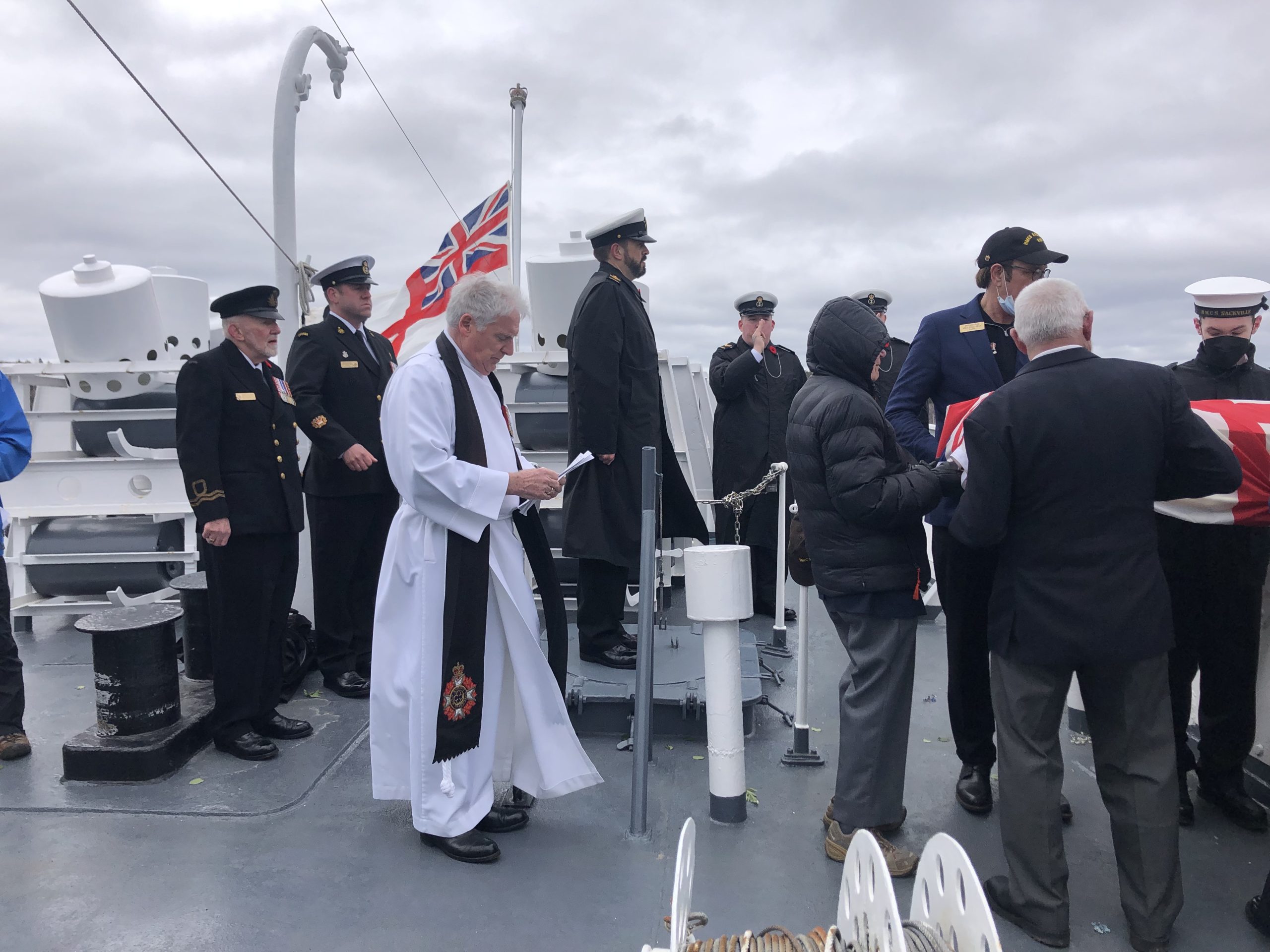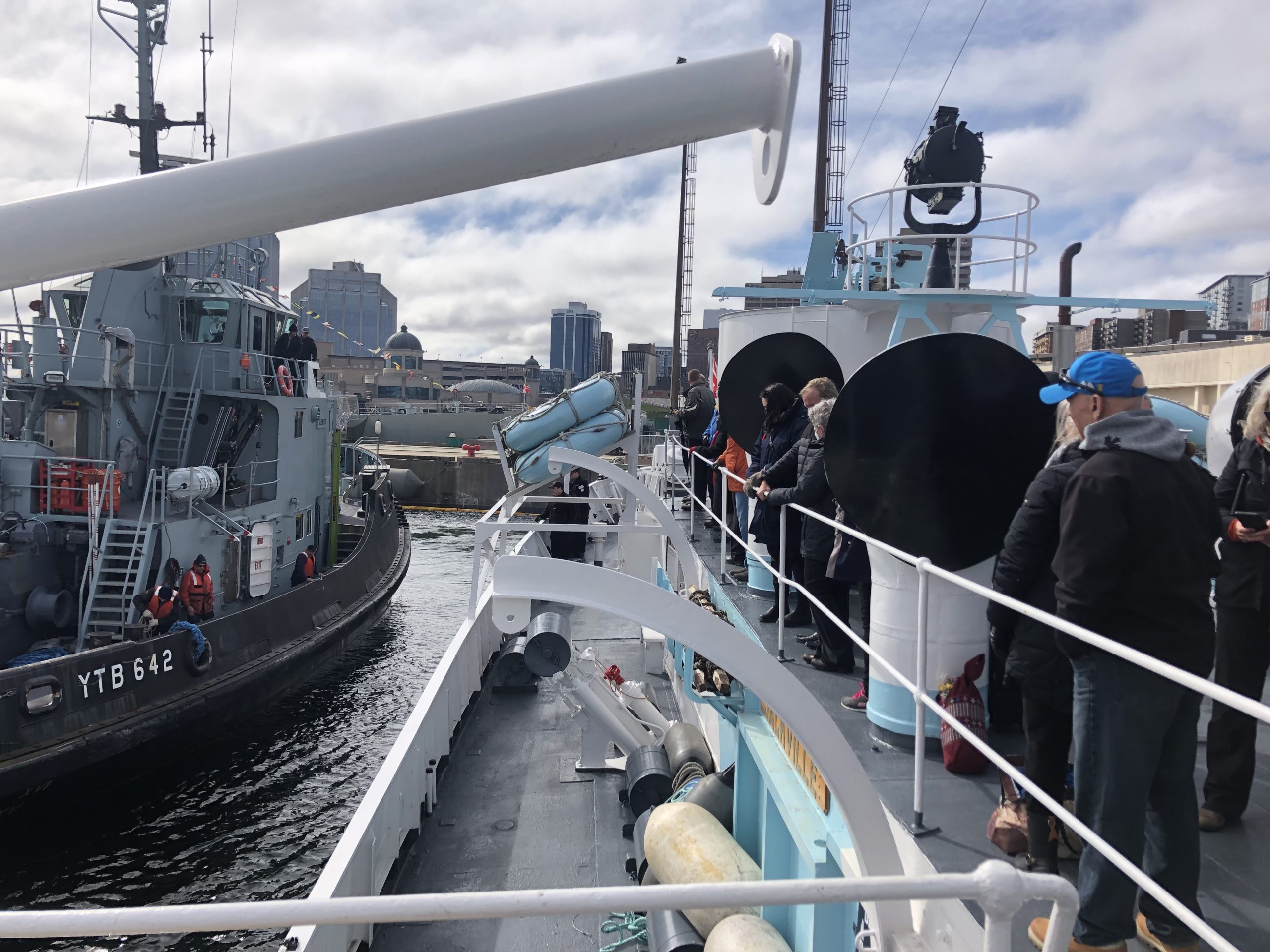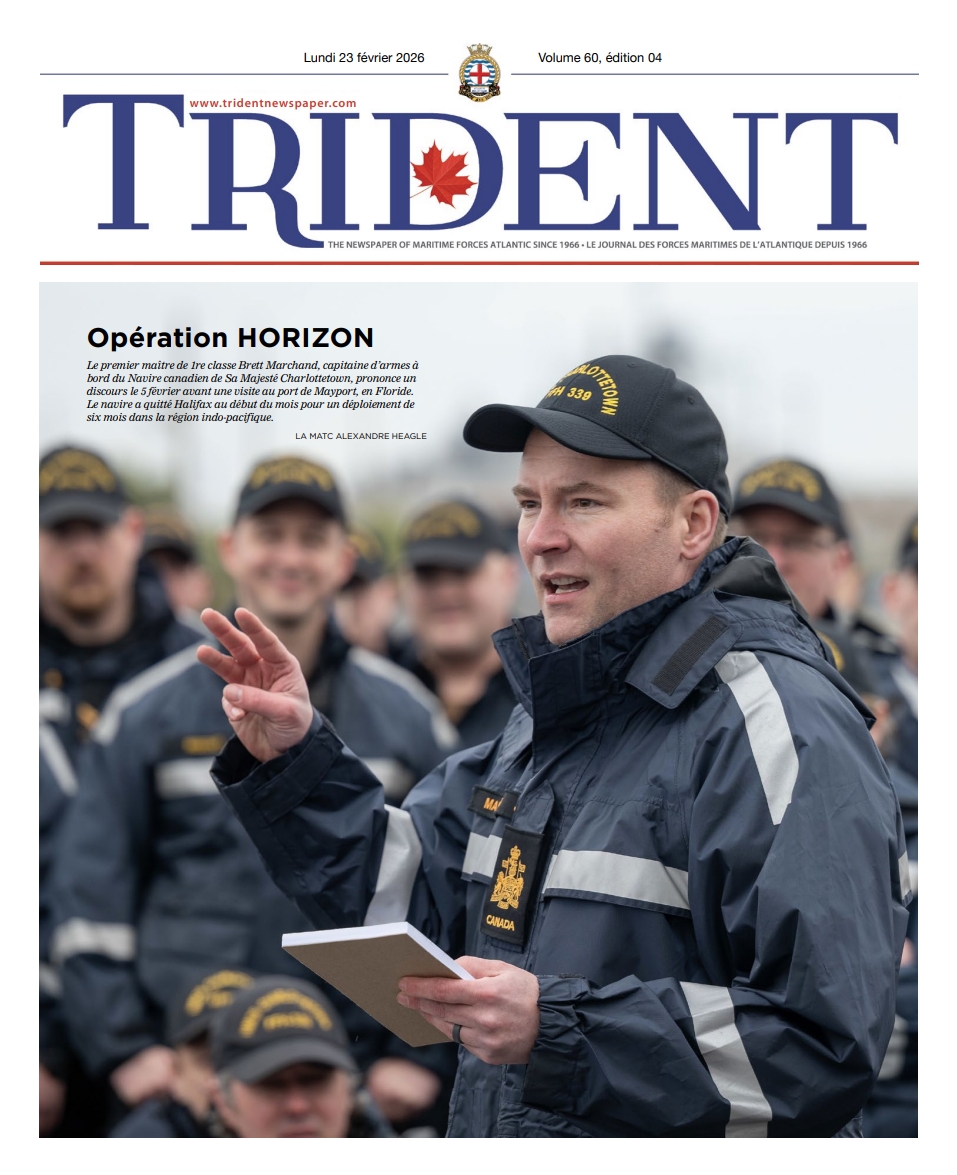
JOANIE VEITCH
Le NCSM Sackville hosts committal of ashes ceremony on Battle of the Atlantic Sunday
Par Joanie Veitch,
Équipe du trident
As the crew of HMCS Sackville readied the ship for sea, a small group of people gathered on the jetty at HMC Dockyard Halifax on the morning of Sunday, May 1st – many of them family members preparing to say a final goodbye to their loved ones at a committal of ashes ceremony held aboard the ship.
“Today is Battle of the Atlantic Sunday. It’s an honour and a privilege to take your loved ones to their final resting place,” said Cdr (Ret’d) Gary Reddy, Sackville’s Commanding Officer with the Canadian Naval Memorial Trust (CNMT), the non-profit that operates the ship, as he outlined the day’s schedule before boarding.

JOANIE VEITCH
Aided by two tugboats, HMCS Sackville first sailed to a point off Point Pleasant Park to serve as the backdrop for the Battle of the Atlantic ceremony at the Sailors’ Memorial. At 11 a.m., both at the memorial and on board the ship, a service was held to commemorate the devastating losses during the Battle of the Atlantic, the longest campaign of the Second World War.
“The elements were often more violent than the enemy. Raging storms, ice, cold, fog, and dense blackness confronted navy and merchant sailors alike. Ships collided, ran aground or were lost to enemy action,” said Cdr (Ret’d) Reddy.
The number of service members who died during maritime operations were staggering: 1,797 Royal Canadian Navy (RCN) men and women, 1,578 Canadian merchant marines and 752 personnel from the Royal Canadian Air Force (RCAF). The Canadian Army and RCAF lost another 380 men at sea when the ships carrying them were sunk.
Following the service, family members gathered in small groupings for the committal of ashes ceremony. With CNMT Chaplain, Padre Andrew Cooke officiating, 20 families took part.cAs each family group came forward, a brief biography was read, either by a family member or one of the CNMT trustees, before the ashes were interred in the sea.
“This is a very significant event for families, especially for those who have a connection to the RCN,” said Padre Cooke.
“It gives them a sense of closure and comfort. The ocean is the ocean… and no matter where they are, when they see the sea they can remember and connect again to their loved one.”
For LCdr (Ret’d) Rick Powell, a trustee with CNMT and First Lieutenant of HMCS Sackville, the opportunity to be part of the committal of ashes ceremony each year is one he cherishes.
“This is a very important event for Sackville and for all of us, as trustees. I loved my time in the Navy… Most of the families who take part are Navy families or have served in the military. I always enjoy meeting the family members and hearing the stories about their loved ones,” he said.
Three young sea cadets from 305 Royal Canadian Sea Cadets Corps (RCSCC) in Sackville also played a role in the day’s events. Cole Moore rang the ship’s bell as the names of the ships lost during the Battle of the Atlantic were read out, and Rhys Doherty assisted in committing a wreath to the sea at the end of the Battle of the Atlantic service. Both also assisted with the committal of ashes ceremony, along with fellow sea cadet Shannyn Parfitt.
“This was a wonderful opportunity for them. It’s a great learning experience and such an honour to be a part of this day,” said Lt(N) Deanna Paul, Training Officer at 305 RCSCC Sackville.
Committal of ashes ceremonies traditionally take place aboard HMCS Sackville twice a year — Battle of the Atlantic Sunday and again in the fall, prior to the ship moving from its summer berth at Sackville Landing on the Halifax waterfront back to HMC Dockyard for the winter.






